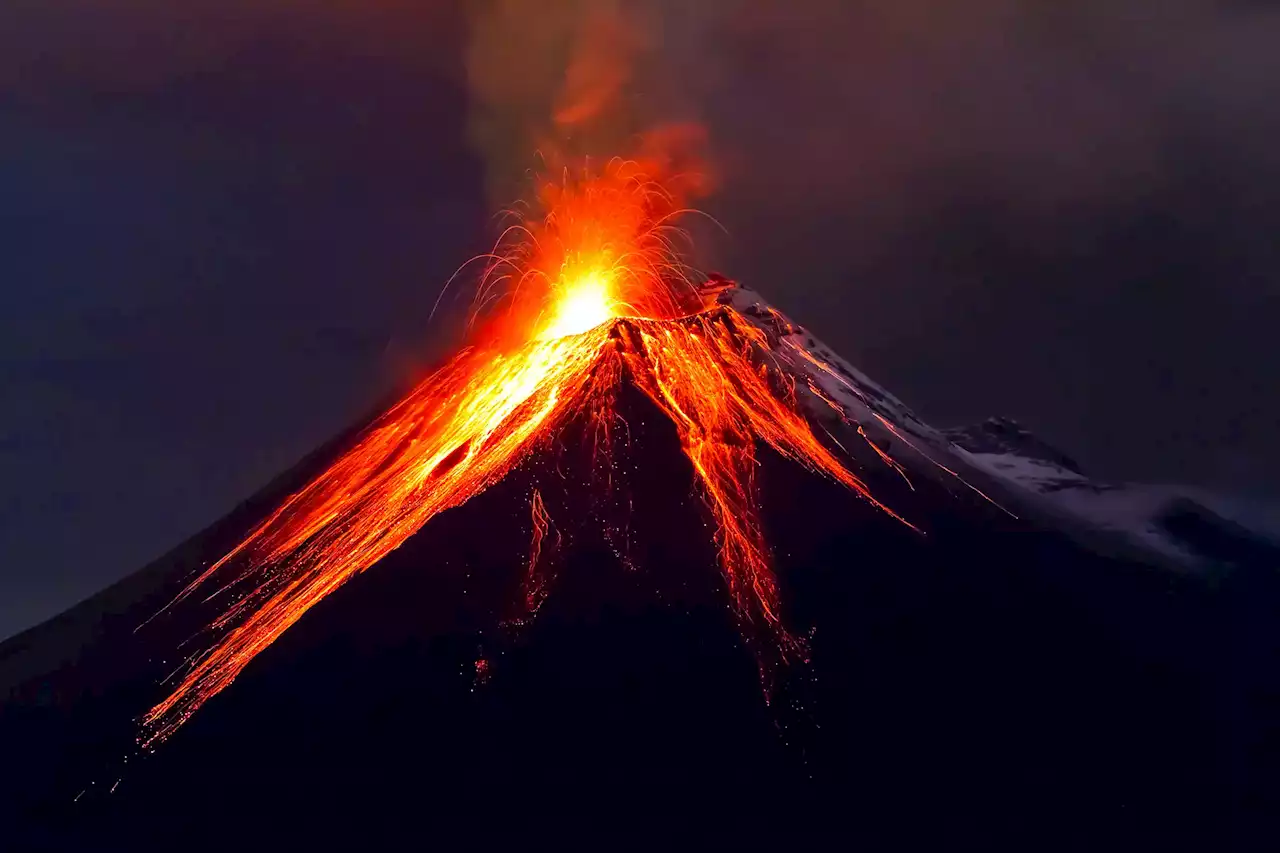🔄FROM THE ARCHIVE Medieval times were not as scientifically stunted as we think. Historian Seb Falk explains how those myths arose — and what science looked like.
I was always interested in medieval history. As a kid, I was really into in knights and battles and that kind of thing. I did medieval history as an undergrad. And I had a kind of strange career route because I worked in the government in the U.K. and then I became a history teacher. It was when I was teaching history, at a school in Canada, that I was asked to teach something called “Theory of Knowledge.
As science develops, people who want to show off their own achievements naturally assume that everything before them was ignorant. It’s assumed that because people didn’t have particular technologies in science, like the telescope, or communication, like the printing press, that nothing was going on. Of course, it’s true to say that theyhave the telescope or the printing press — but that doesn’t mean you can’t make discoveries or communicate your ideas. You just do it in different ways.
Q: Was there a lightbulb moment when you first started to realize, as you say in your book, that the Middle Ages were “so much more than battles and black boils”? I think it was just this moment of realization that there’s this whole other aspect of life in the Middle Ages that we ignore because we’re so caught up in the battles and chivalry and wars and conquest and the Black Death. Yet, all the while, people are still able to look up at the stars and figure out how the world works and do precise calculations and do math and astronomy and go study at universities.
But people in the Middle Ages made really precise measurements of the planets and the sun and the moon through the stars. Because they wanted the most accurate calendars that they could. That was important to Christians; in order to celebrate the feasts and festivals, like Easter, on the right day of the year, they had to get a very tight grip on the solar and lunar calendars.
At the same time, Westwyck had this really fascinating, adventurous life where he goes on a crusade and gets exiled to the north of England where all the monks are complaining about the terrible food and the terrible weather. And he probably went and studied at Oxford, so that gave me an opportunity to talk about the importance of universities in the late Middle Ages. He was really the perfect guide to the achievements of medieval science.
United States Latest News, United States Headlines
Similar News:You can also read news stories similar to this one that we have collected from other news sources.
 Unexpected Contribution: How Medieval Monks Helped Advance Modern VolcanologyAn international team, led by the University of Geneva (UNIGE), has successfully dated some of the largest eruptions in history by analyzing medieval texts. While studying the night sky, medieval monks inadvertently documented some of the most significant volcanic eruptions in history. A global tea
Unexpected Contribution: How Medieval Monks Helped Advance Modern VolcanologyAn international team, led by the University of Geneva (UNIGE), has successfully dated some of the largest eruptions in history by analyzing medieval texts. While studying the night sky, medieval monks inadvertently documented some of the most significant volcanic eruptions in history. A global tea
Read more »
 History As It Happens: The long 1960sThe reason why Congress is unable to pass sweeping measures desired by the Left to fundamentally change American capitalism is simple. Democrats don’t have the votes. HistoryAsItHappens podcast
History As It Happens: The long 1960sThe reason why Congress is unable to pass sweeping measures desired by the Left to fundamentally change American capitalism is simple. Democrats don’t have the votes. HistoryAsItHappens podcast
Read more »
 History As It Happens: The Long 1960sHistorian Michael Kazin, a distinguished scholar of the American left, says American politics are caught in 'the long 1960s.' For decades Congress has been unable to pass sweeping measures desired by the progressive left to fundamentally reform American capitalism. They simply don’t have the votes. In fact, neither major party recently has dominated Congress the way, for instance, Democrats did during the New Deal era, with more than 70 seats in the Senate and a massive advantage in the House. Why a partisan stalemate has endured since the 1960s is a complicated problem to unpack, but the answer leads to today’s congressional math. Throughout U.S. history, very few periods of one-party dominance have occurred, periods where great legislative activity was possible.
History As It Happens: The Long 1960sHistorian Michael Kazin, a distinguished scholar of the American left, says American politics are caught in 'the long 1960s.' For decades Congress has been unable to pass sweeping measures desired by the progressive left to fundamentally reform American capitalism. They simply don’t have the votes. In fact, neither major party recently has dominated Congress the way, for instance, Democrats did during the New Deal era, with more than 70 seats in the Senate and a massive advantage in the House. Why a partisan stalemate has endured since the 1960s is a complicated problem to unpack, but the answer leads to today’s congressional math. Throughout U.S. history, very few periods of one-party dominance have occurred, periods where great legislative activity was possible.
Read more »
 History As It Happens: The Long 1960sHistorian Michael Kazin, a distinguished scholar of the American left, says American politics are caught in 'the long 1960s.' For decades Congress has been unable to pass sweeping measures desired by the progressive left to fundamentally reform American capitalism. They simply don’t have the votes. In fact, neither major party recently has dominated Congress the way, for instance, Democrats did during the New Deal era, with more than 70 seats in the Senate and a massive advantage in the House. Why a partisan stalemate has endured since the 1960s is a complicated problem to unpack, but the answer leads to today’s congressional math. Throughout U.S. history, very few periods of one-party dominance have occurred, periods where great legislative activity was possible.
History As It Happens: The Long 1960sHistorian Michael Kazin, a distinguished scholar of the American left, says American politics are caught in 'the long 1960s.' For decades Congress has been unable to pass sweeping measures desired by the progressive left to fundamentally reform American capitalism. They simply don’t have the votes. In fact, neither major party recently has dominated Congress the way, for instance, Democrats did during the New Deal era, with more than 70 seats in the Senate and a massive advantage in the House. Why a partisan stalemate has endured since the 1960s is a complicated problem to unpack, but the answer leads to today’s congressional math. Throughout U.S. history, very few periods of one-party dominance have occurred, periods where great legislative activity was possible.
Read more »
 History As It Happens: The Long 1960sHistorian Michael Kazin, a distinguished scholar of the American left, says American politics are caught in 'the long 1960s.' For decades Congress has been unable to pass sweeping measures desired by the progressive left to fundamentally reform American capitalism. They simply don’t have the votes. In fact, neither major party recently has dominated Congress the way, for instance, Democrats did during the New Deal era, with more than 70 seats in the Senate and a massive advantage in the House. Why a partisan stalemate has endured since the 1960s is a complicated problem to unpack, but the answer leads to today’s congressional math. Throughout U.S. history, very few periods of one-party dominance have occurred, periods where great legislative activity was possible.
History As It Happens: The Long 1960sHistorian Michael Kazin, a distinguished scholar of the American left, says American politics are caught in 'the long 1960s.' For decades Congress has been unable to pass sweeping measures desired by the progressive left to fundamentally reform American capitalism. They simply don’t have the votes. In fact, neither major party recently has dominated Congress the way, for instance, Democrats did during the New Deal era, with more than 70 seats in the Senate and a massive advantage in the House. Why a partisan stalemate has endured since the 1960s is a complicated problem to unpack, but the answer leads to today’s congressional math. Throughout U.S. history, very few periods of one-party dominance have occurred, periods where great legislative activity was possible.
Read more »
 History As It Happens: The Long 1960sHistorian Michael Kazin, a distinguished scholar of the American left, says American politics are caught in 'the long 1960s.' For decades Congress has been unable to pass sweeping measures desired by the progressive left to fundamentally reform American capitalism. They simply don’t have the votes. In fact, neither major party recently has dominated Congress the way, for instance, Democrats did during the New Deal era, with more than 70 seats in the Senate and a massive advantage in the House. Why a partisan stalemate has endured since the 1960s is a complicated problem to unpack, but the answer leads to today’s congressional math. Throughout U.S. history, very few periods of one-party dominance have occurred, periods where great legislative activity was possible.
History As It Happens: The Long 1960sHistorian Michael Kazin, a distinguished scholar of the American left, says American politics are caught in 'the long 1960s.' For decades Congress has been unable to pass sweeping measures desired by the progressive left to fundamentally reform American capitalism. They simply don’t have the votes. In fact, neither major party recently has dominated Congress the way, for instance, Democrats did during the New Deal era, with more than 70 seats in the Senate and a massive advantage in the House. Why a partisan stalemate has endured since the 1960s is a complicated problem to unpack, but the answer leads to today’s congressional math. Throughout U.S. history, very few periods of one-party dominance have occurred, periods where great legislative activity was possible.
Read more »
